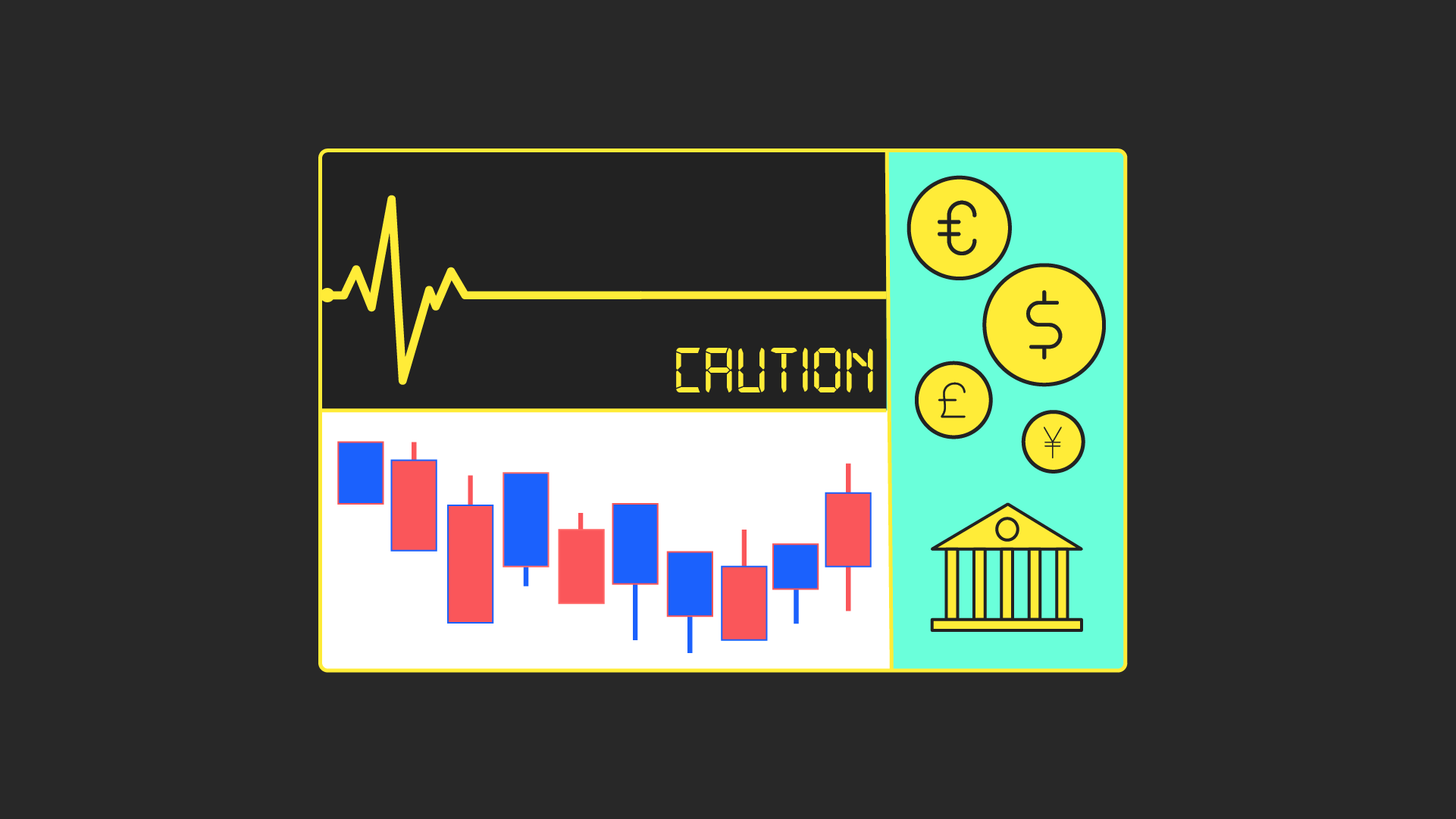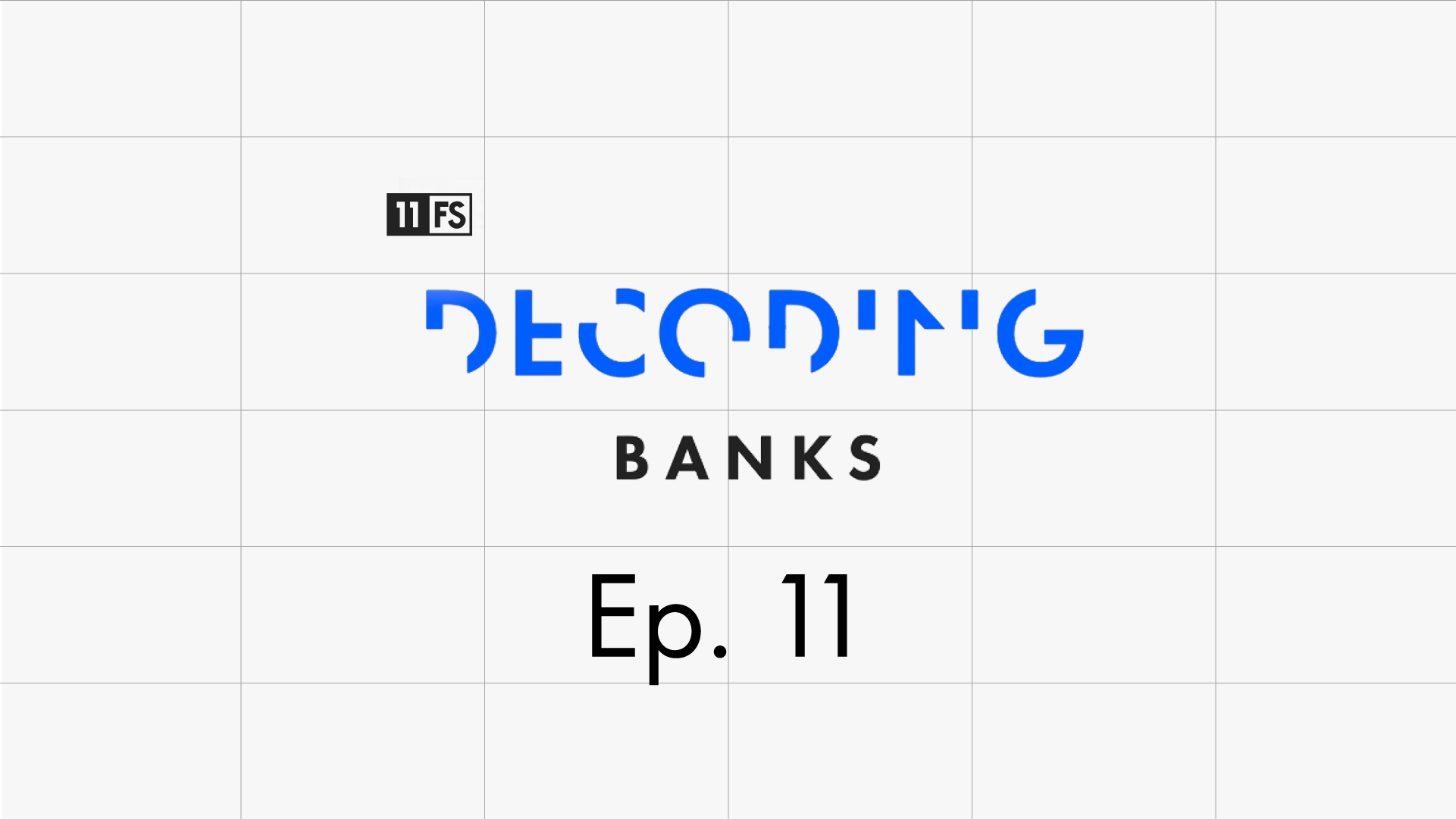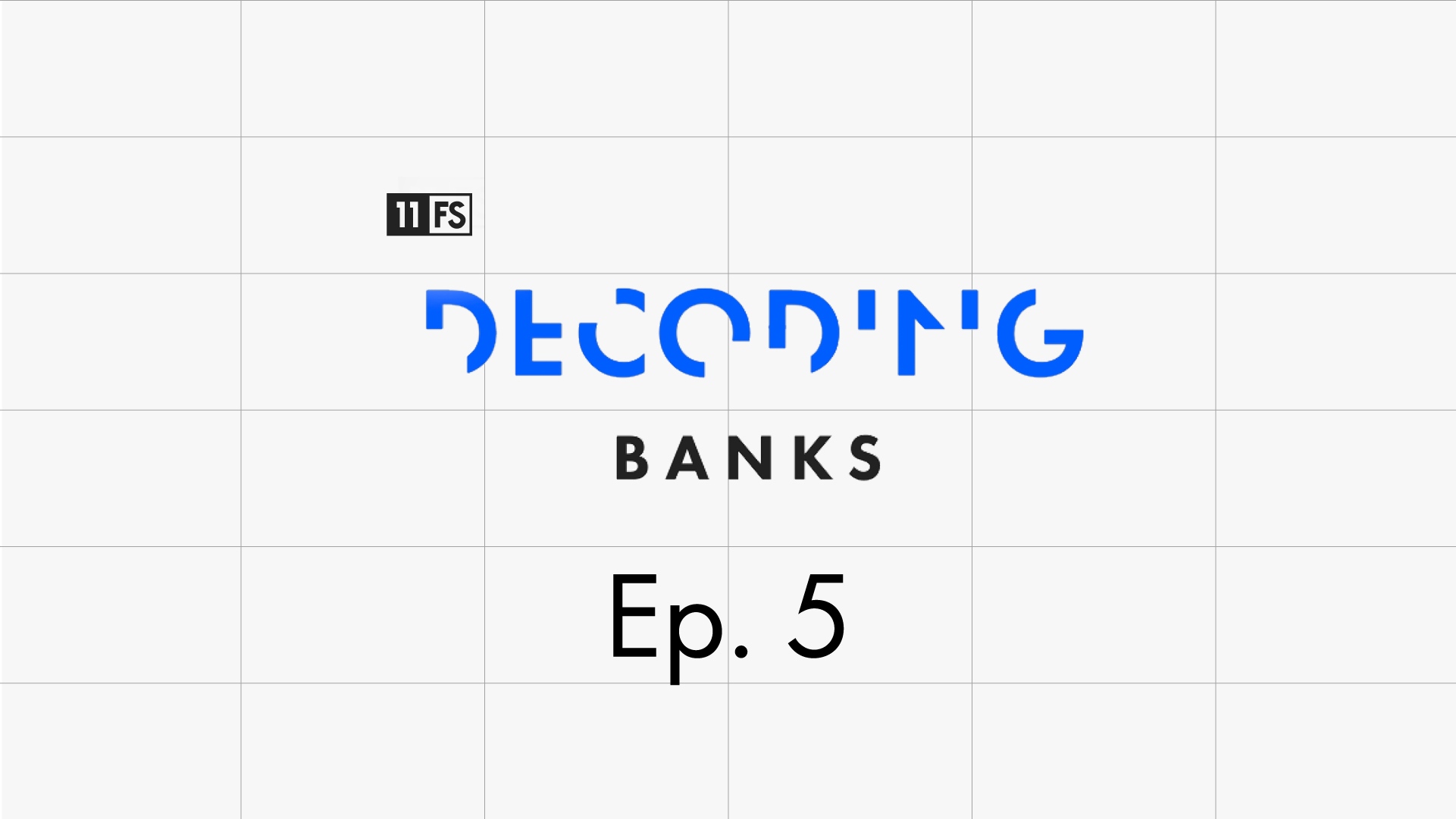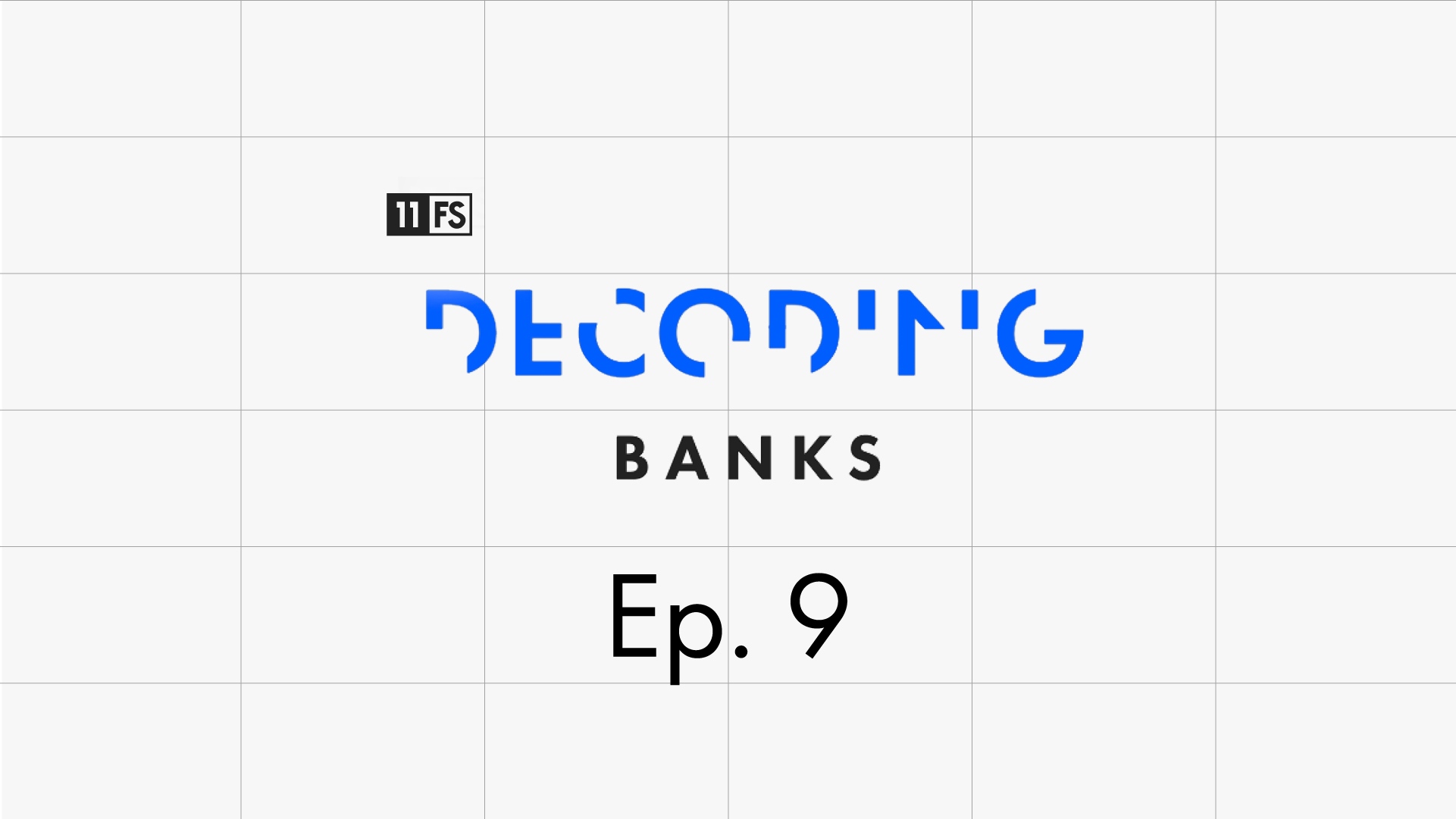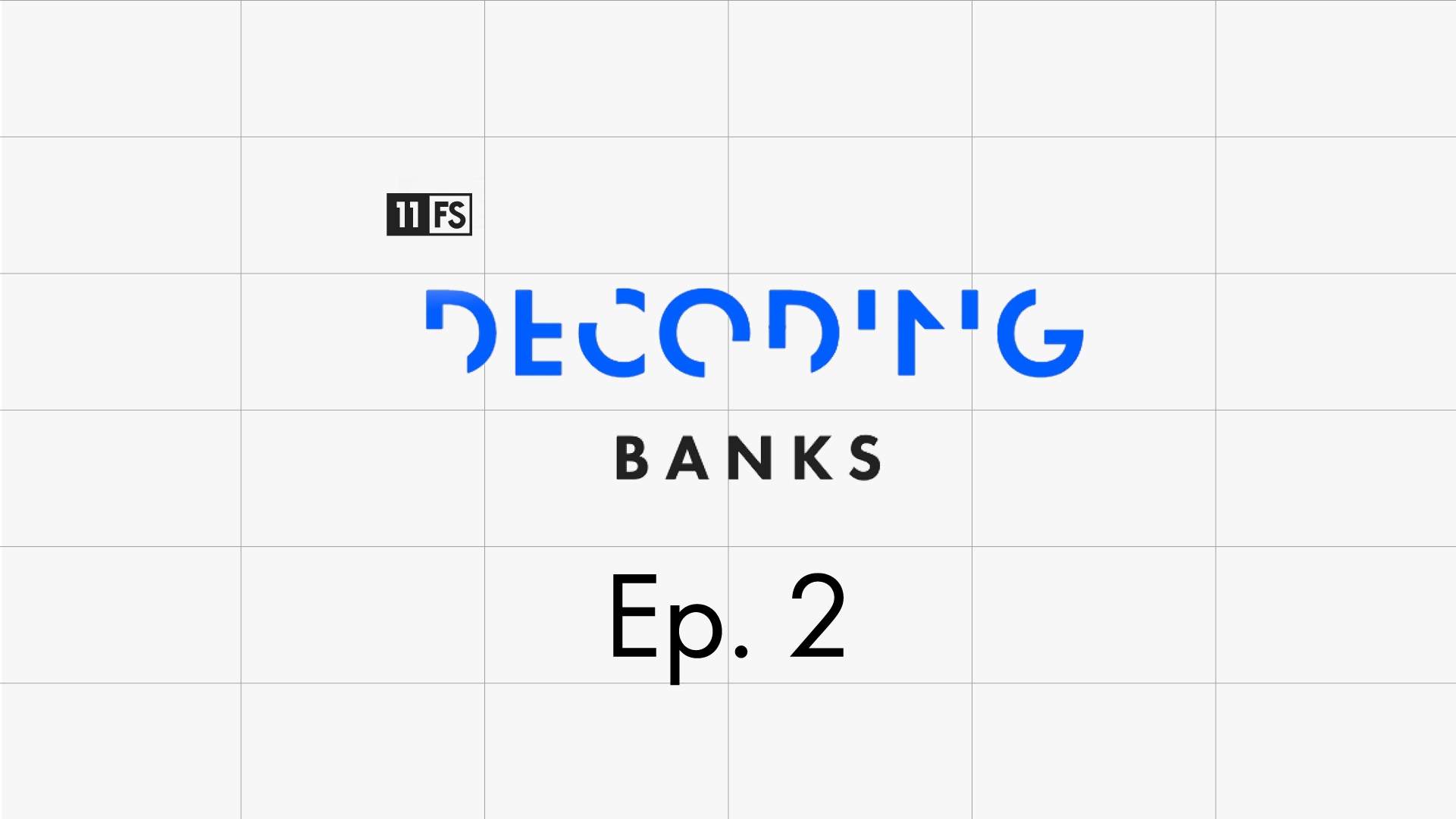
Global
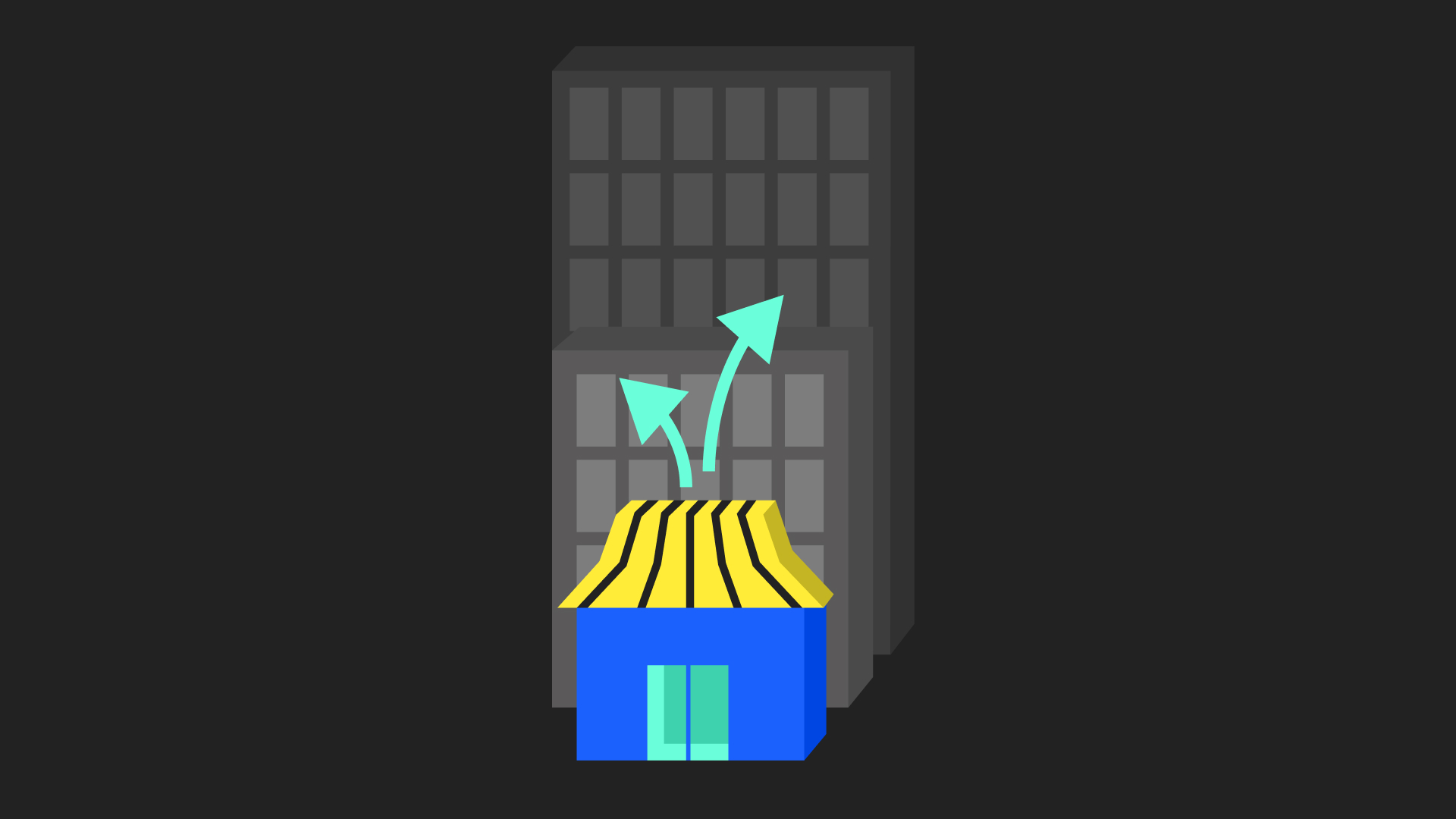
Why the future of fintech depends on empowering SMBs
While consumer-focused fintech has seen waves of innovation since the early 2000s, the small and medium-sized business (SMB) sector has remained comparatively underserved.

Agentic AI is reshaping financial services
Unlocking agentic AI’s upside demands rethinking how humans and systems share control, rebuilding data and API foundations, and scaling autonomy in measured steps with rigorous human-style QA

How digital payouts offer a competitive edge to insurers
In the highly competitive insurance sector, customer experience is a critical differentiator. While insurers focus on policy features and premiums, the claims payout process is often overlooked, creating a significant point of friction.

I’ve incentivised innovation, why isn't my team innovating?
At one of our Truly Digital After Dark events, Anne Boden said “if you call yourself digital, you’re not digital”.

Tackling fraud in real time: balancing speed and security
The term ‘technical debt’ has been around a long time in software engineering. It shares some common characteristics with financial debt: You can accumulate it, you can ‘pay it off’.
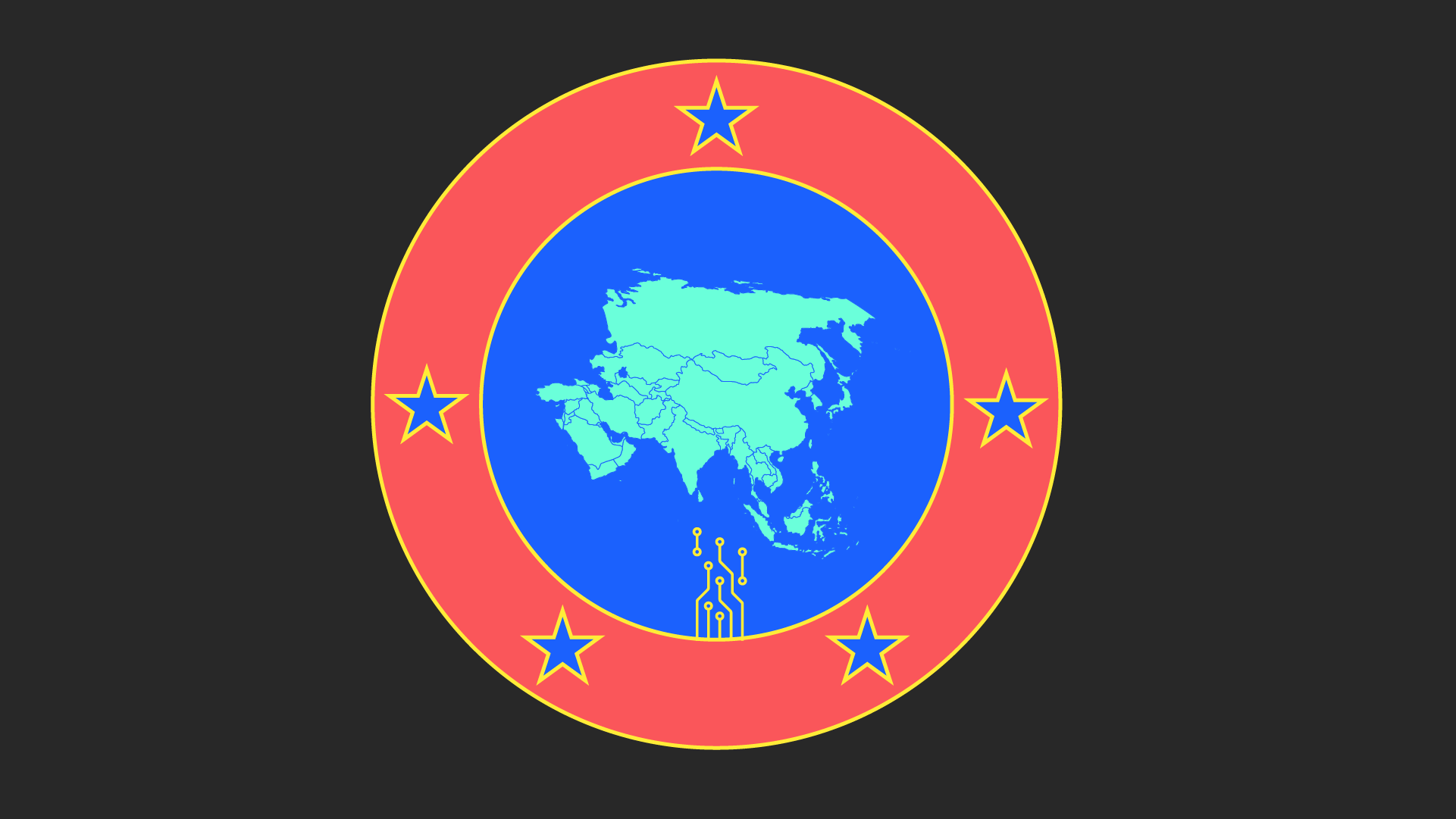
5 fintechs to watch in Asia
The fintech scene in Asia is booming. In recent years, the region has developed rapidly, with a diverse array of startups and established banks transforming how financial services are delivered and consumed.

How internal adoption fuels successful embedded finance solutions
Payments in the Middle East are evolving. The payments landscape in the Middle East has stood at an important tipping point for some time.
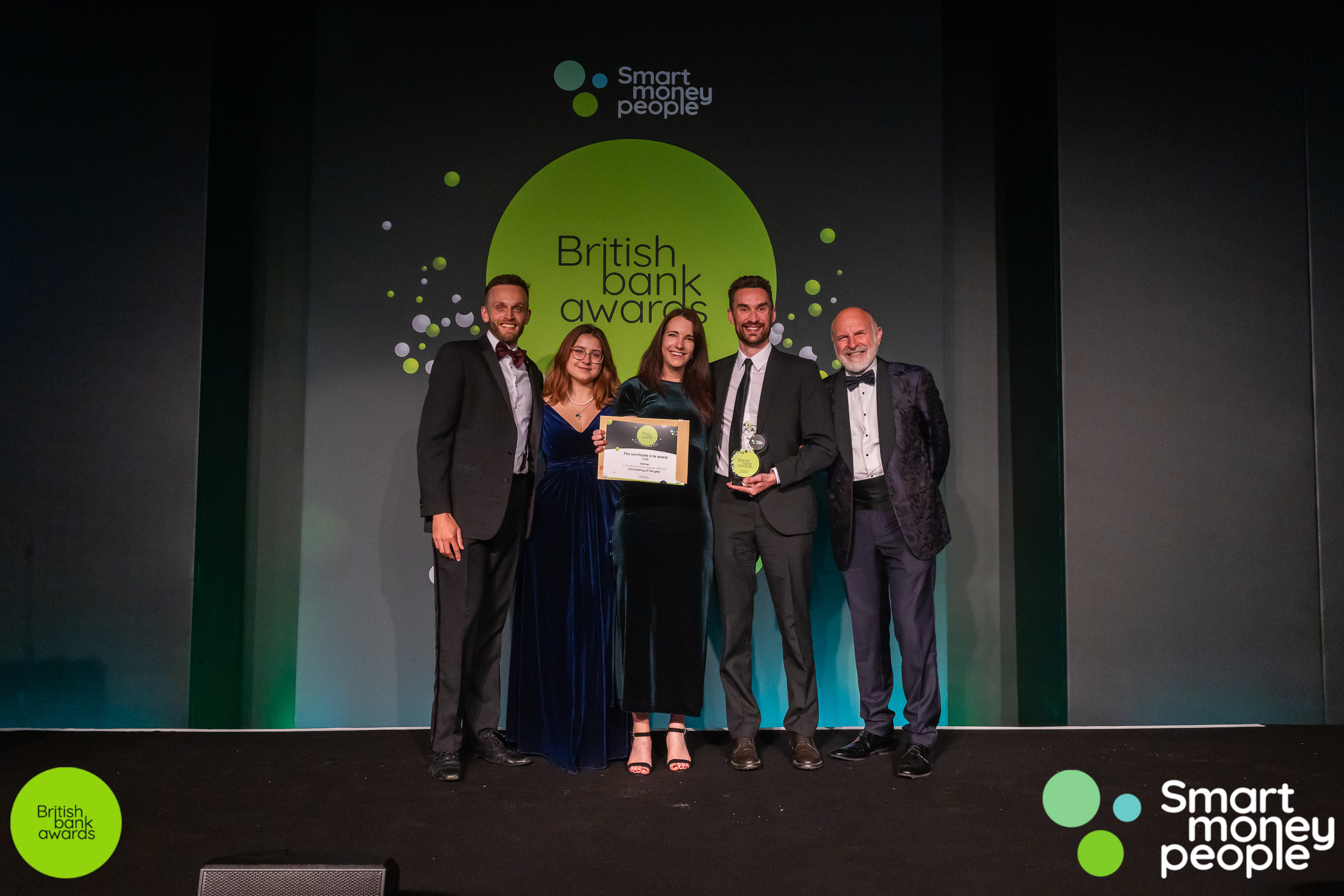
We won Consultancy of the Year 2025!
The U.S. Treasury and the Office of the Comptroller of the Currency (OCC) both hit the headlines with fintech-related announcements. Treasury released a 222-page report on the subject of Nonbank Financials, Fintech, and Innovation, while the OCC almost immediately followed with the news that it would finally begin accepting National Bank Charter applications from fintechs, in line with Treasury recommendations.

Execution is everything: Why speed x quality wins the day
How do I create the 5 year plan for 8 software releases a day? This is one of my favourite lines from an old school bank executive. It happened live on stage in front of 500 people when I made the point that challenger banks are now operating at 8 releases per day. It might seem nerdy, but why does it matter how often banks release new software?
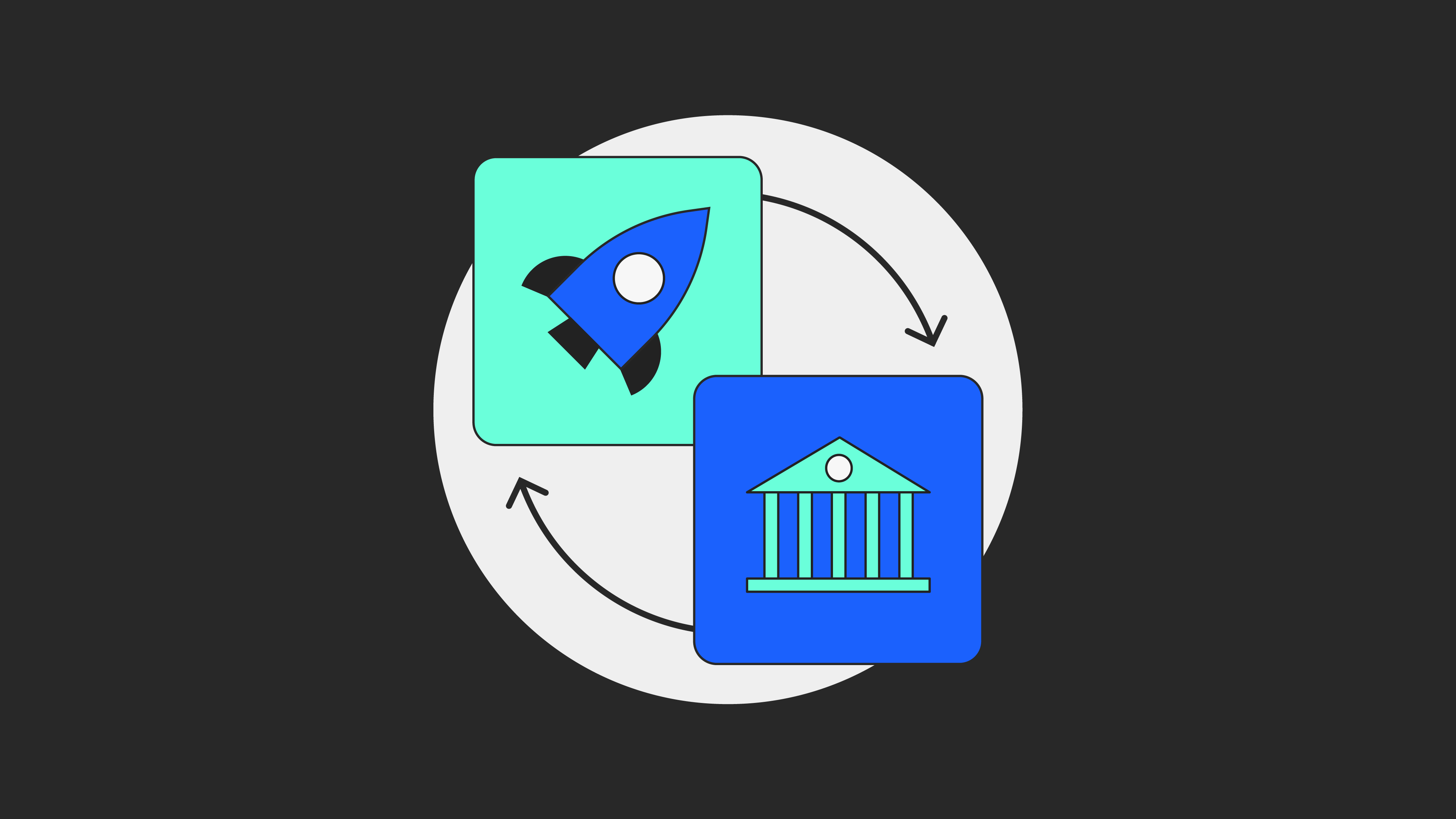
Are you selling or partnering with banks?
The fintech ecosystem is currently going through an exciting phase. Startups that were once considered young and immature like Monzo, Revolut, or Airwallex have grown into established financial companies. At the same time, incumbent banks are getting better at engaging and investing in fintech. The two worlds are converging and sparking new opportunities for partnerships.
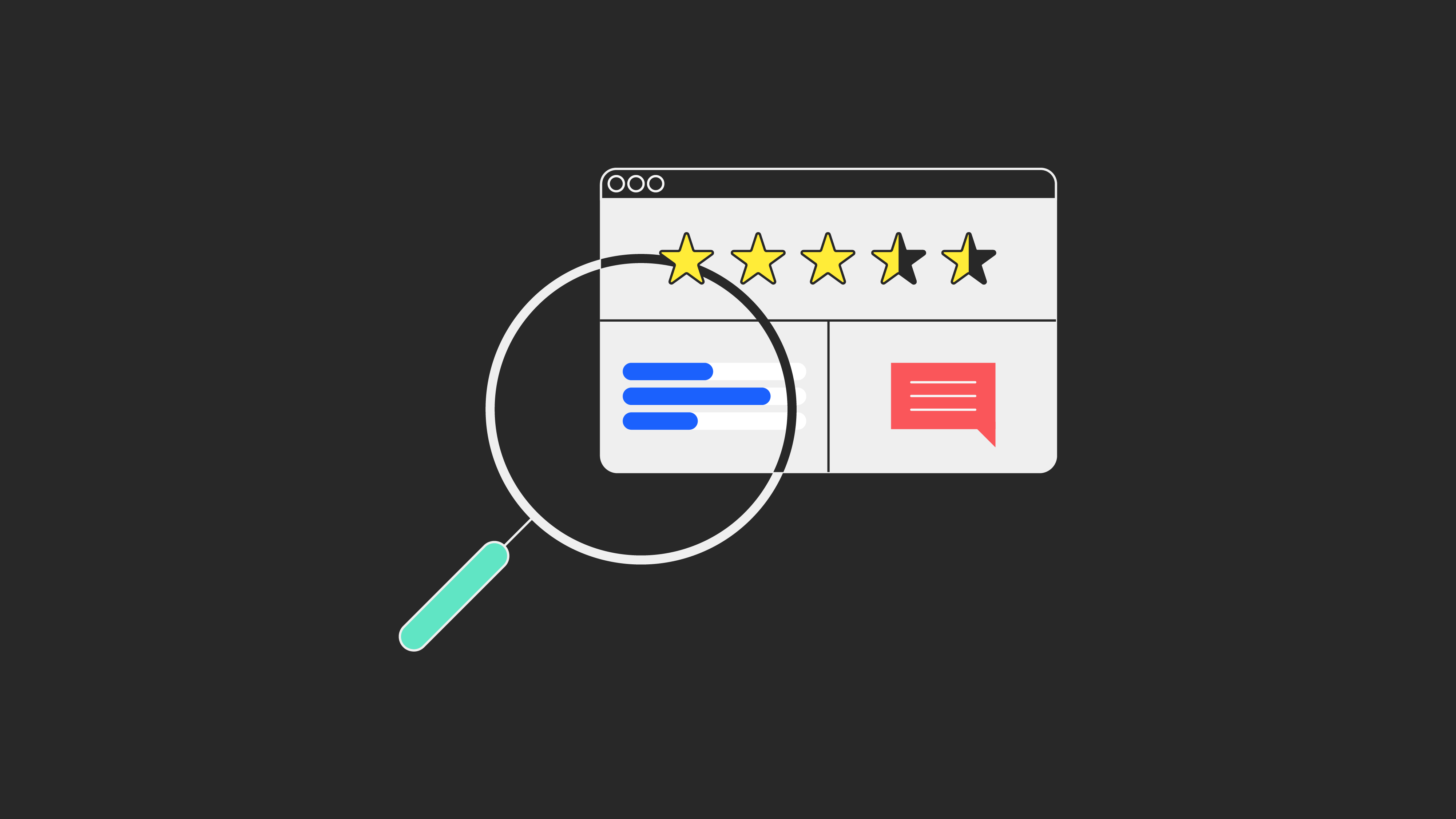
Introducing the new Brand Page on 11:FS Pulse
Bonjour! Comment allez-vous? France’s fintech star is rising. With over 1100 of them based in the capital alone, junior minister Cédric O has promised that Paris will eclipse London as the fintech hotspot in Europe in the near-distant future.

VR & AR: Transforming the Fintech Landscape
Asking the wrong questions will only ever lead to the wrong solutions. That’s why we lean into Jobs to be Done at 11:FS. It’s based on the notion that there’s no use in asking what the customer wants, because they don’t actually know. This is taken from our Unfiltered newsletter. Subscribe now for a no BS, uncensored analysis of fintech news and hot topics delivered to your inbox each fortnight.

The forever banks - how private banks are still unfazed by disruption
11:FS has come a long way in a short time, and as the company has grown up, so must the branding. It's time to sit down, take stock of how we look and sound and fine-tune our identity.
.jpg)
1030
1030. News: Nala and Noah partner on cross-border stablecoins – is a 10% US credit card interest cap coming?
Host Laura Watkins, Director of Media & Marketing at 11:FS, is joined by some great guests to discuss the biggest stories from the world of financial services over the past week.
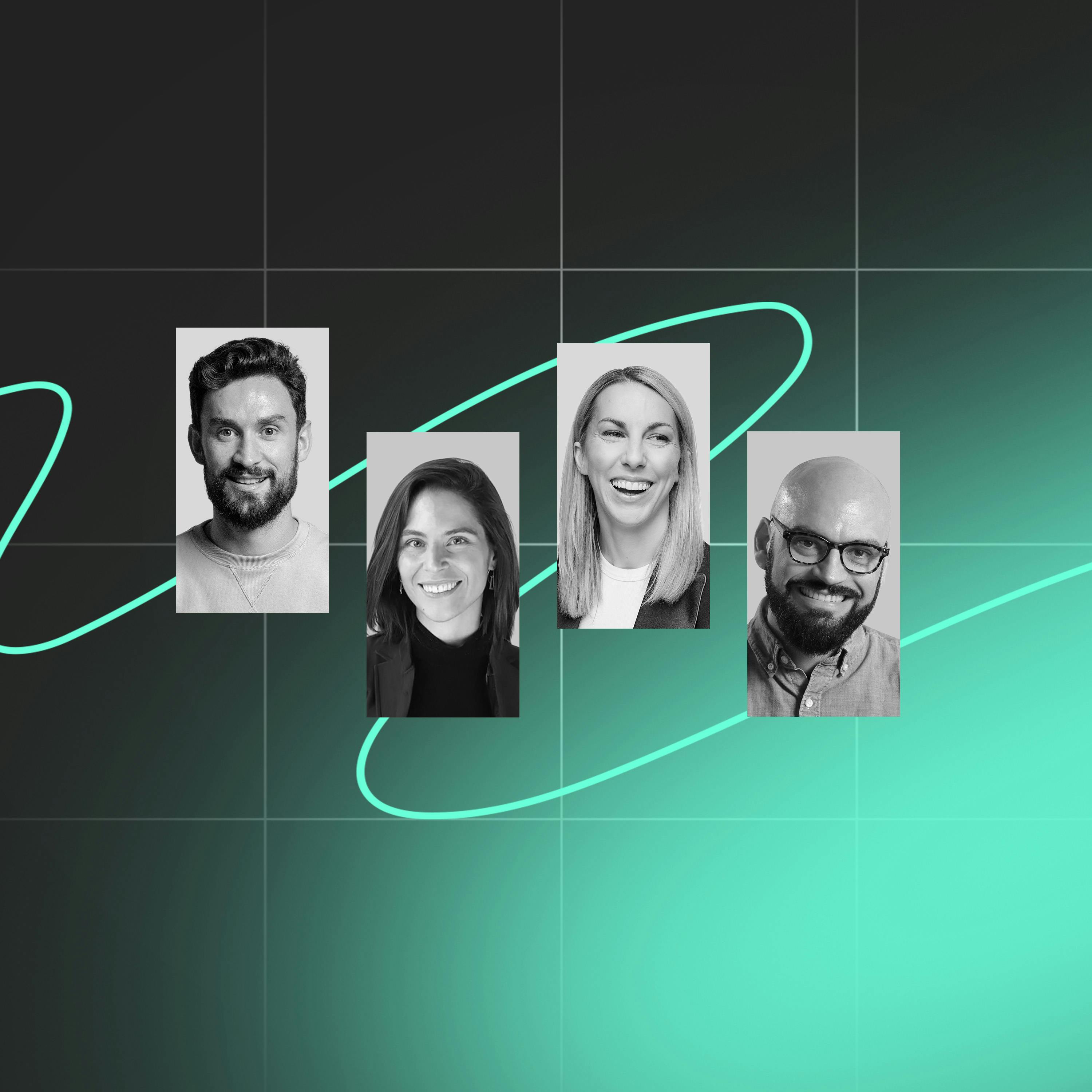
1029
1029. Insights: How AI is reshaping consumer-focused banking
On this week's episode, David M. Brear is joined by some great guests to tack a question on every bank and fintech leader’s mind: is AI redefining consumer-focused banking in 2026?
.jpg)
1028
1028: News: Flutterwave buys Mono, PicPay files for a US IPO, and Jamie Dimon is ready to share JPMorgan’s ‘secret sauce’
In a fresh wave of fintech consolidation and strategic moves, Flutterwave has acquired Mono. JPMorgan has launched its Special Advisory Services initiative to give key clients access to consulting services drawn from the bank’s own practices. PicPay has filed for a U.S. IPO, and Mercury has applied to the OCC for a national bank charter.
.jpg)
1027
1027: Insights: Lights, camera, transactions- engineering payments at a global scale with JP Morgan and Netflix
David M. Brear, Group CEO at 11:FS, sits down with two heavyweights in the payments world: Tracy Birdsall, Managing Director and Head of EMEA & APAC, Merchant Services Sales, at J.P. Morgan Payments, and Kristen Morrow-Greven, Vice President and Head of Global Payments at Netflix.
.png)
1026
1026: Insights: Our fintech predictions for 2026
In this episode, the team is kicking things off with bold predictions for the year ahead, some you might have seen coming and some that might surprise you. They stake their reputations, embrace a bit of friendly ribbing, and share their most daring forecasts for the future of fintech.
.jpg)
1025
1025: News: GoCardless CEO lifts the lid on the Mollie deal as Monzo targets Revolut’s dominance in Ireland
On this week’s final news show of the year, we hear from GoCardless about their exciting acquisition by Mollie. It’s been a big week for Monzo, which has secured an Irish banking licence and acquired UK mortgage brand Habito. We also take a look at Orange Payments and Visa’s new partnership.
.jpg)
1024
1024: Insights: The moments that made fintech in 2025
Join our hosts as they break down the year’s most memorable moments. From the fintech feel-good story of the year and the buzziest new term, to the partnership that caught everyone off guard and the glow-up that wowed the industry - we cover it all.
.jpg)
1023
1023: News: How Airwallex became an $8 billion fintech giant as US funding falls
Host Kate Moody, Customer Strategy Director at 11:FS, is joined by a fantastic panel of guests as we dive into some of the biggest stories from the worlds of fintech, banking, and wider financial services this week.
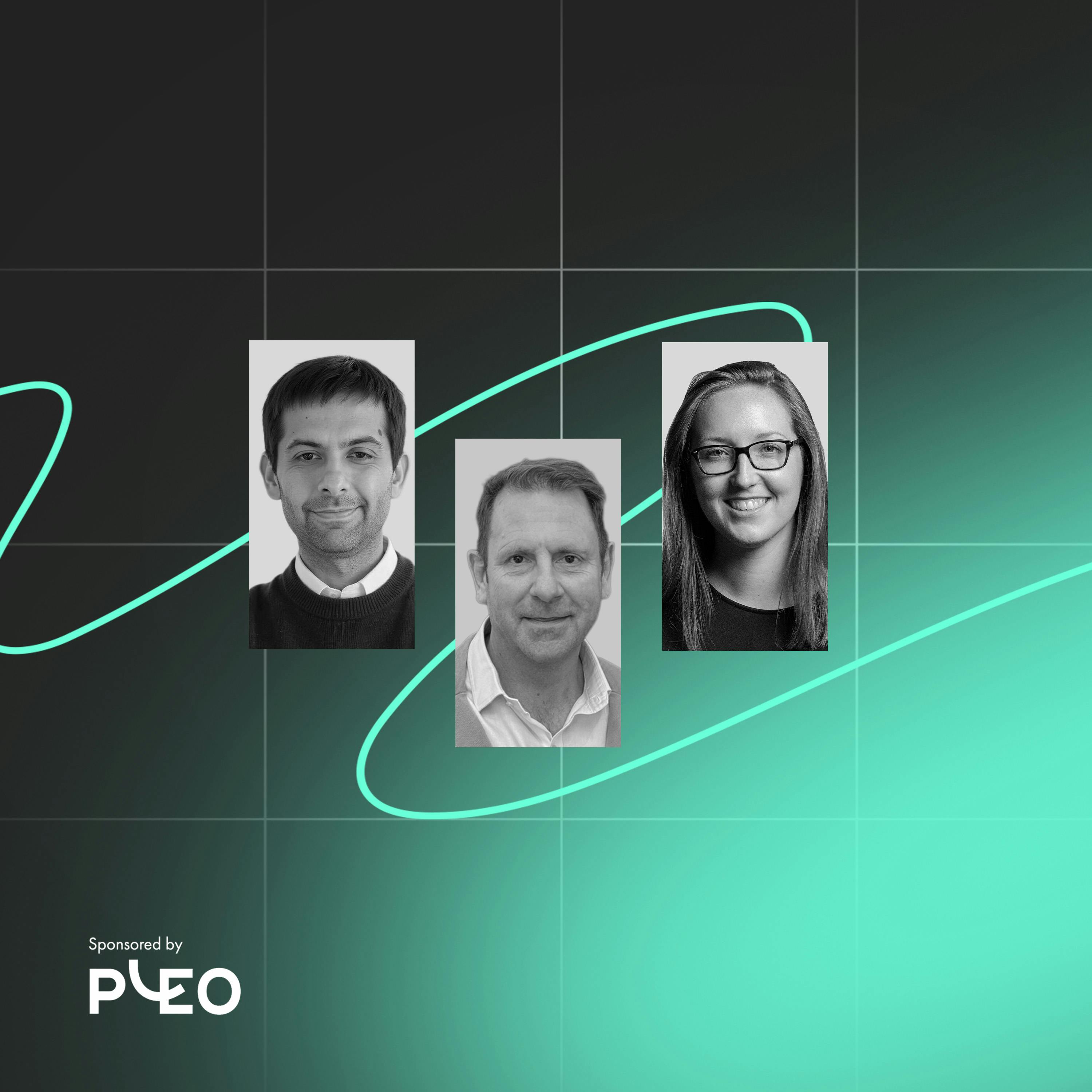
1022
1022. Insights: How small and medium-sized businesses win with embedded finance
Banks aren’t just building apps anymore - they’re building digital CFOs. Join Kate Moody in this episode of Fintech Insider as she explores how SMB banking is evolving from simple dashboards to intelligent financial guidance.
.jpg)
1021
1021: News: Revolut takes on phone snatchers - and banks still need to take sustainability seriously
Host David Barton-Grimley, Fintech Strategy Director and Head of Product at 11:FS, is joined by a fantastic panel of guests as we dive into some of the biggest stories from the worlds of fintech, banking, and wider financial services this week.
.jpg)
1020
1020: Insights: How ready are you for stablecoin regulation?
With the US GENIUS Act reshaping digital-asset oversight, the EU’s MiCA rules setting a unified standard, and the UK opening the door for stablecoins as an official form of payment, one thing is clear: stablecoins are going mainstream, fast.
.jpg)
1019
1019: News: Bank it like Beckham, Klarna’s stablecoin pivot, and Chase taps in on the Tube
Host Ross Gallagher, Head of Consulting is joined by a fantastic panel of guests as we dive into some of the biggest stories from the worlds of fintech, banking, and wider financial services this week.
.jpg)
1017
1017: News -After Dark: Long live the high street bank! Revolut checks in with Booking.com, and Visa trials stablecoin payouts
Our expert host, David M. Brear, and co-host, Kate Moody, present Fintech Insider News live from Village Underground in London, joined by some fantastic guests to discuss the biggest fintech and financial services stories of the week.
.jpg)
1016
1016: Is agentic commerce the future of payments? Live from Paris with J.P. Morgan
Live from Paris, David M. Brear steps into the heart of payments transformation - a shift that’s unfolding far beyond the checkout screen and deep within the financial stack.
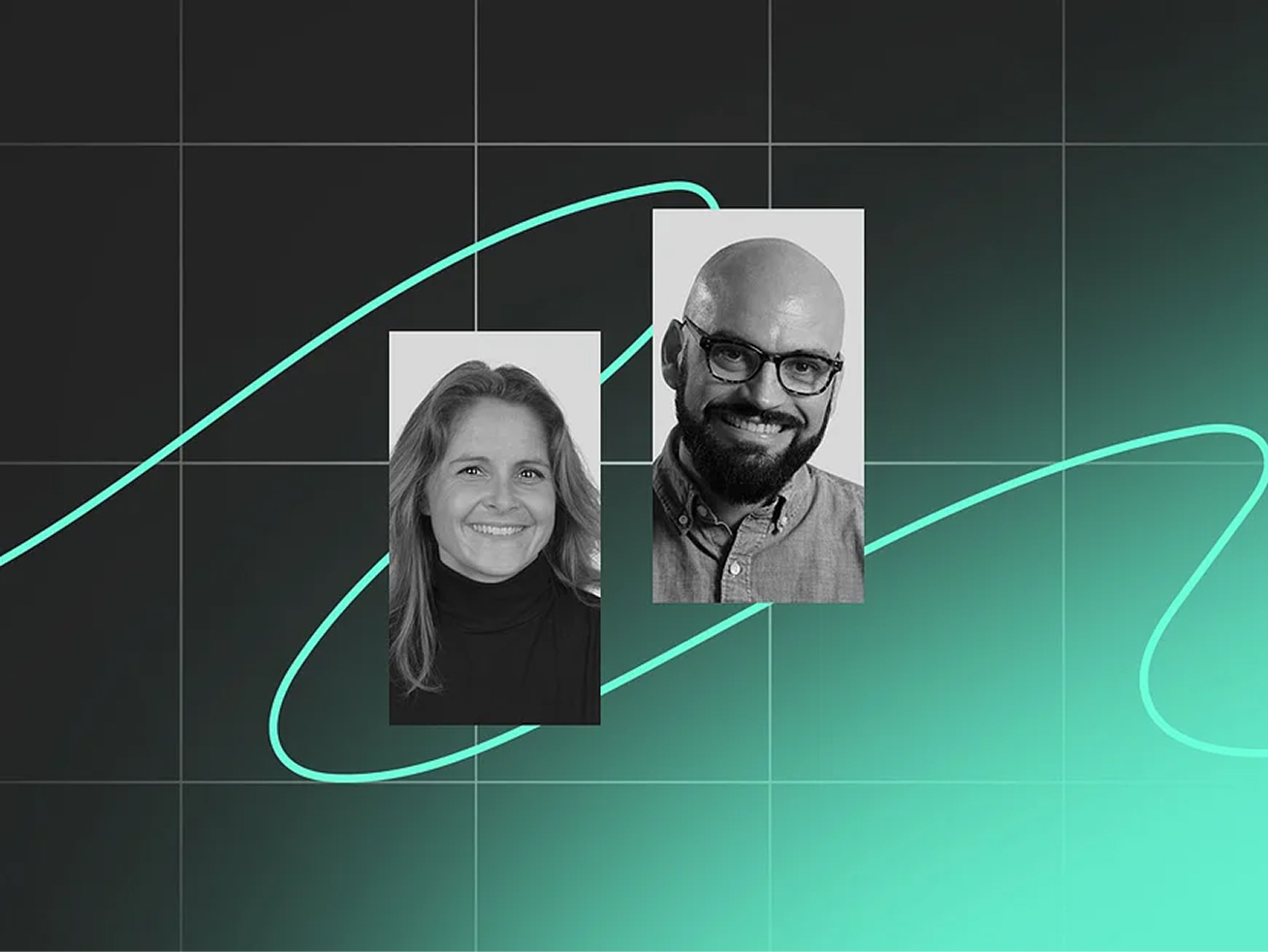
1015
1015: News: PayPal launches BNPL in Canada, Coinbase expands into current accounts - and financial education hits the classroom
Host Laura Watkins, Director of Media and Marketing, is joined by a fantastic panel of guests as we dive into some of the biggest stories from the worlds of fintech, banking, and wider financial services this week.
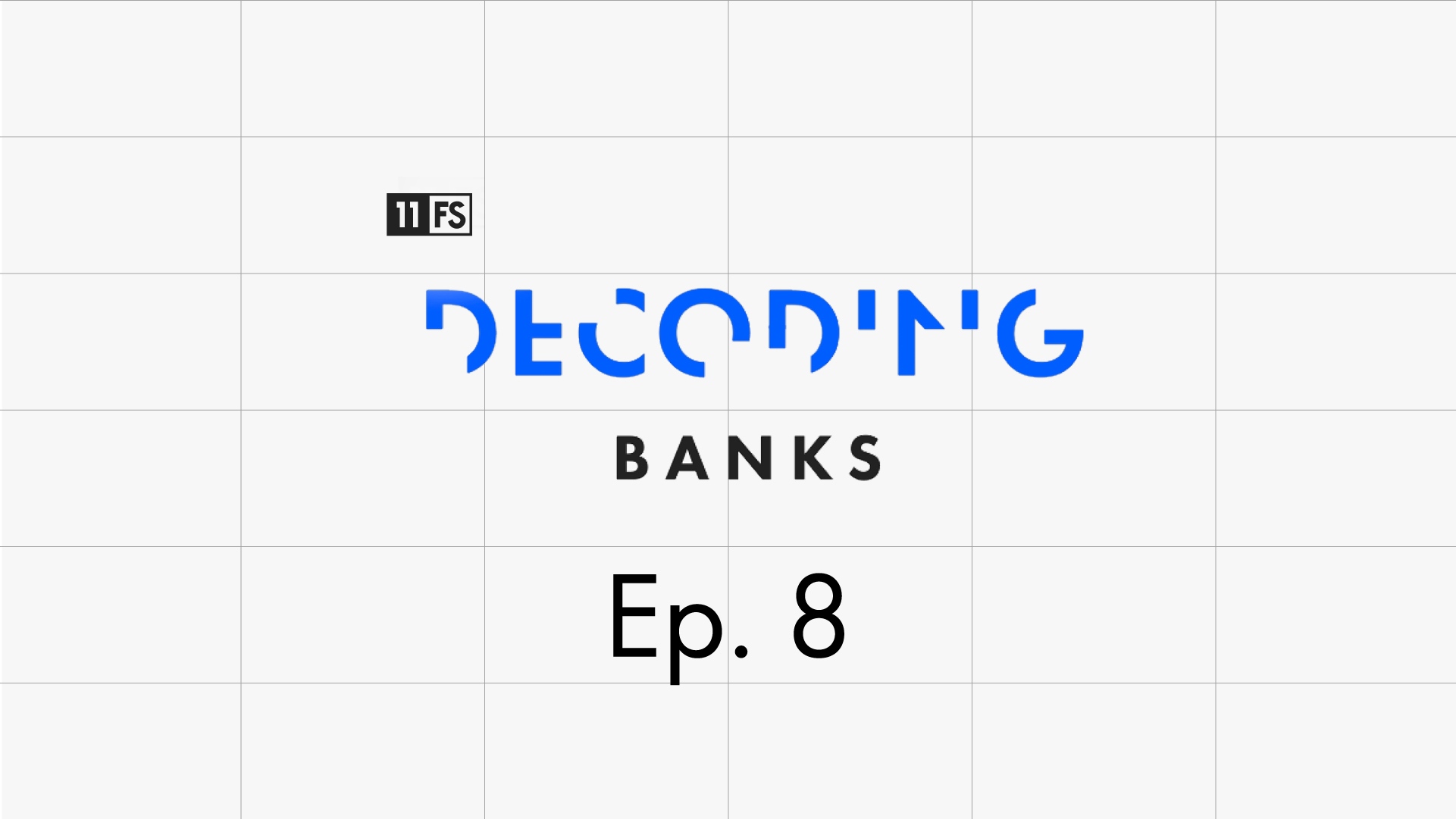
What are fintechs? - Decoding: Banks
Ever wanted to know what’s going on behind the scenes every time we make a payment?

How does banking regulation work? - Decoding: Banks
Regulation is essential. It stops banks from going bust or behaving badly.
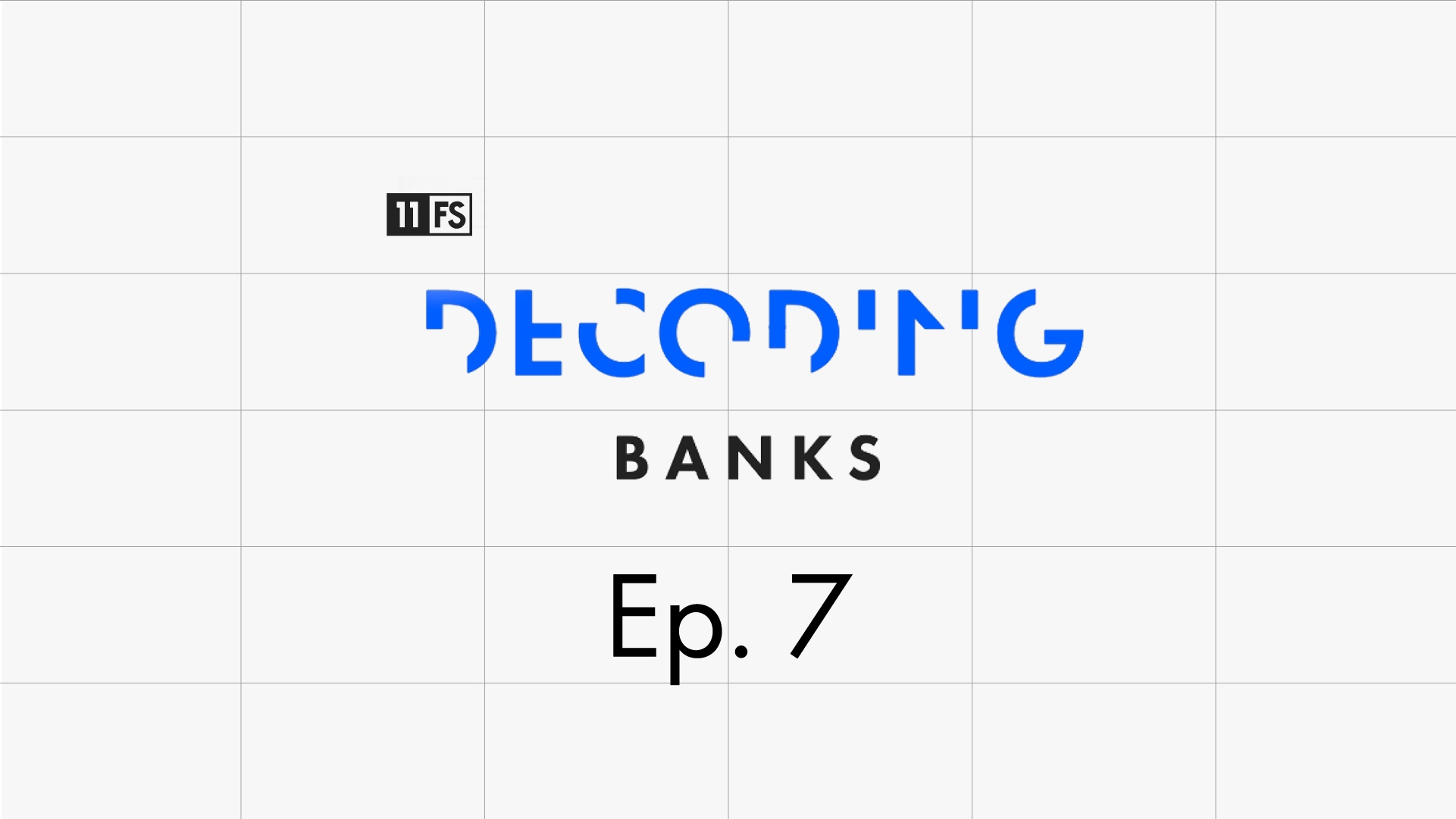
How has software evolution influenced banking? - Decoding: Banks
The invention of the computer revolutionised banking in the 1950s.

How does lending work? - Decoding: Banks
Lending has been around for thousands of years and is one of the cornerstones of banking.
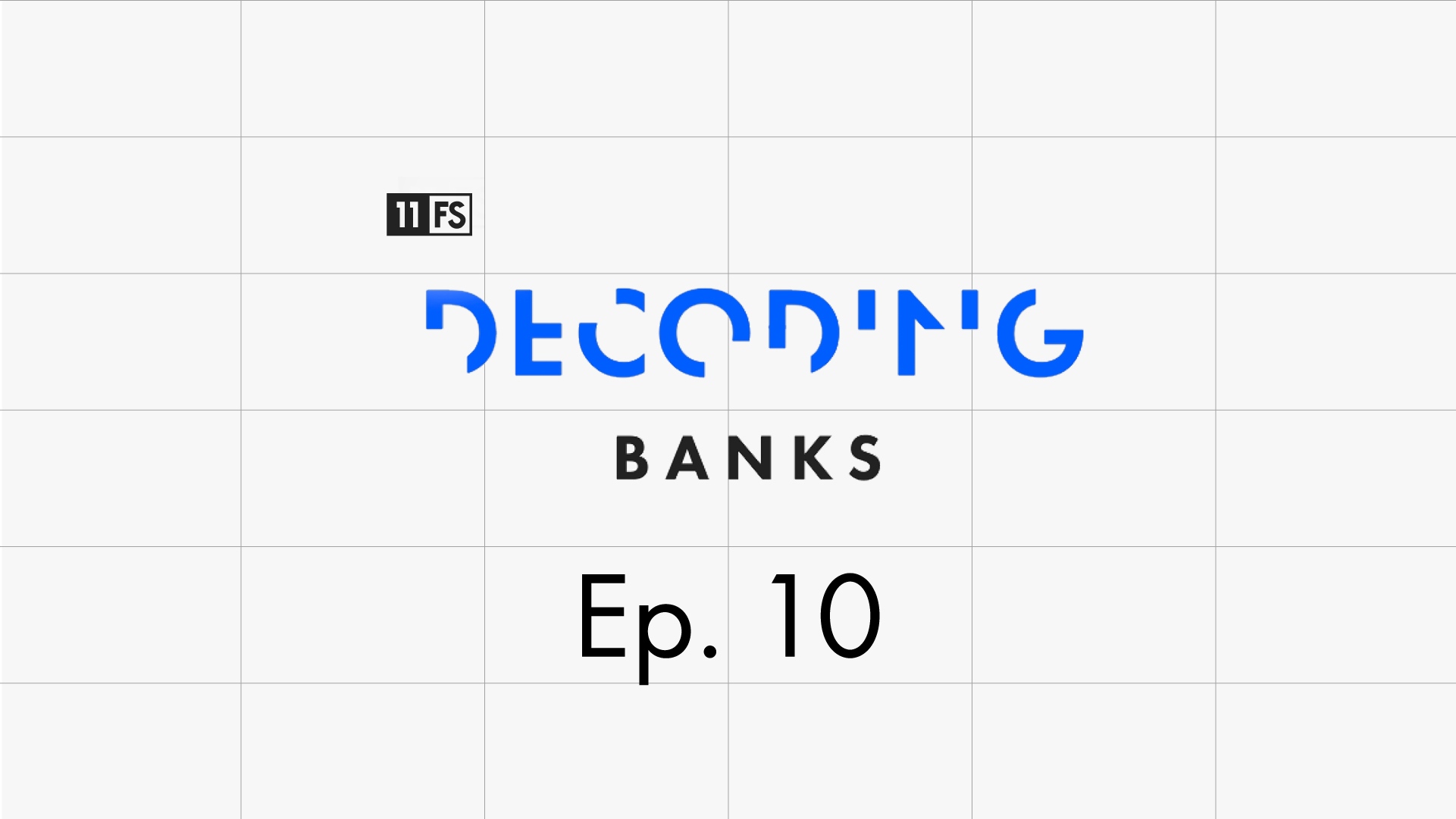
How can traditional banks win on the banking battlefield? - Decoding: Banks
They're down, but they're not certainly not out.
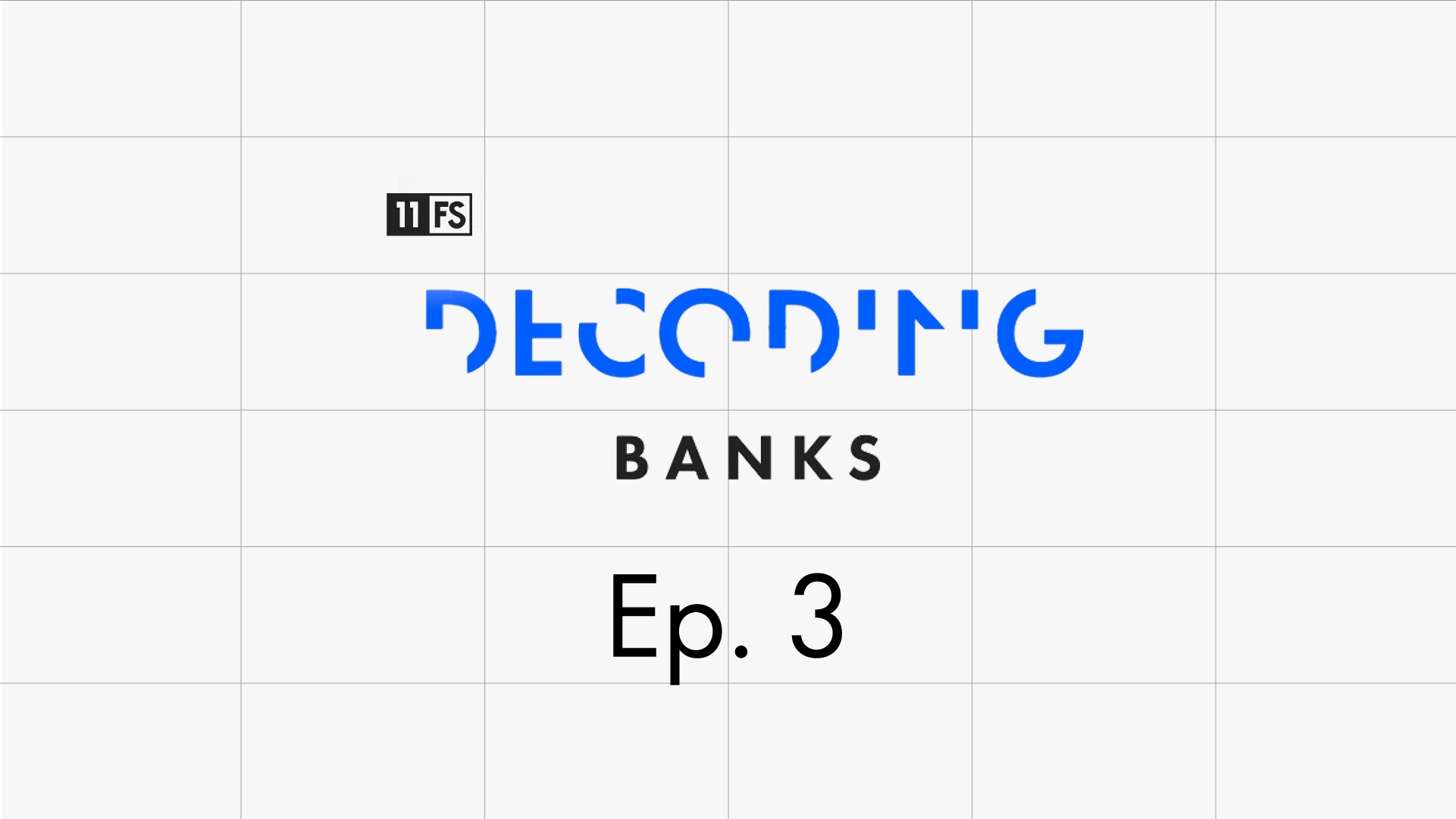
How do card networks operate? - Decoding: Banks
Mastercard and Visa are the two biggest credit card networks in the world.
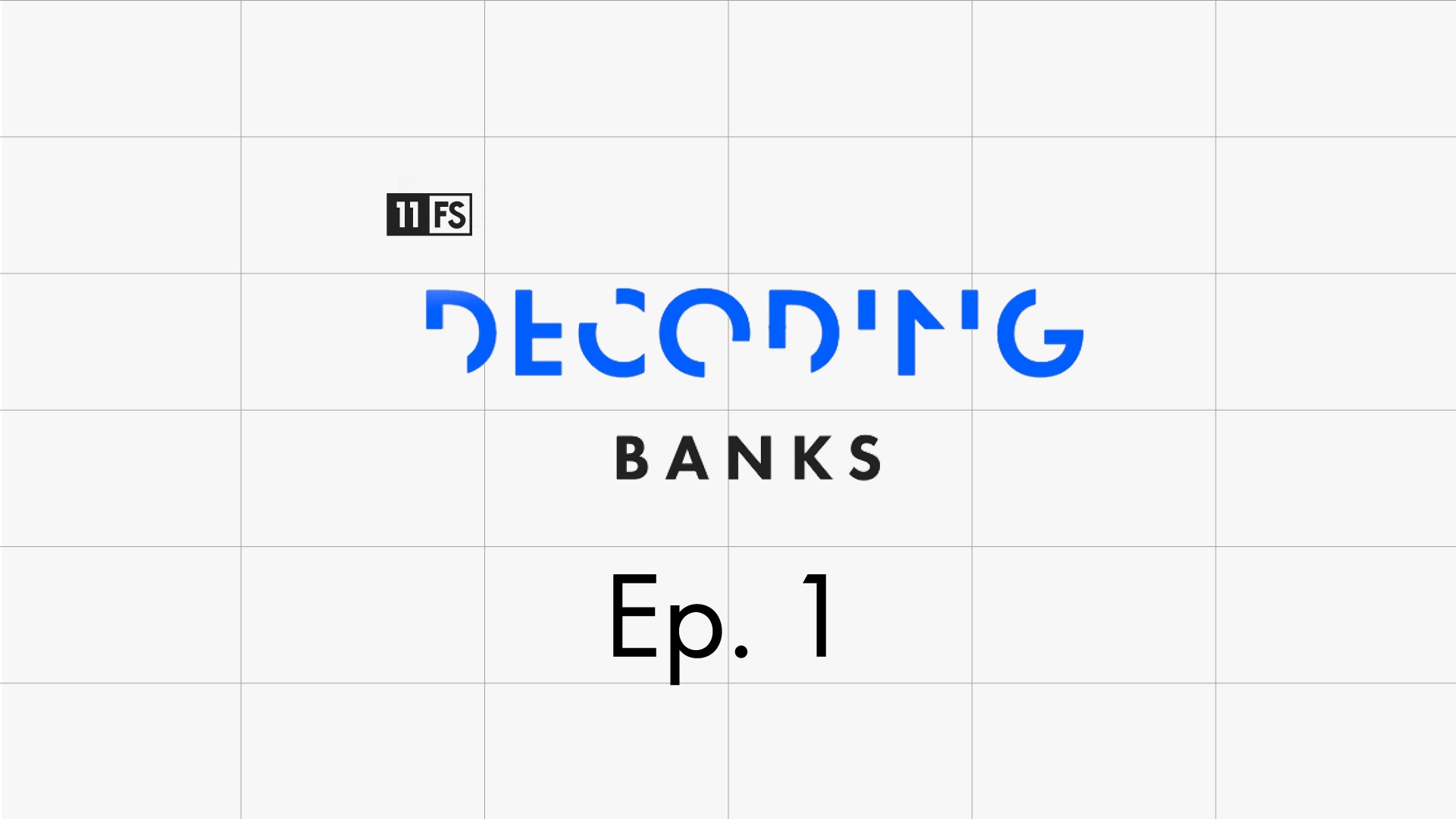
How has the banking battlefield evolved? - Decoding: Banks
We kick off our Decoding: Banks series with a look at the banking landscape today and how we got here.

11:FS Explores: Legacy banking systems ft. David M. Brear
David M. Brear, our 11:FS CEO, takes us through legacy technology within banks - but of course, with a really cool Lightboard.
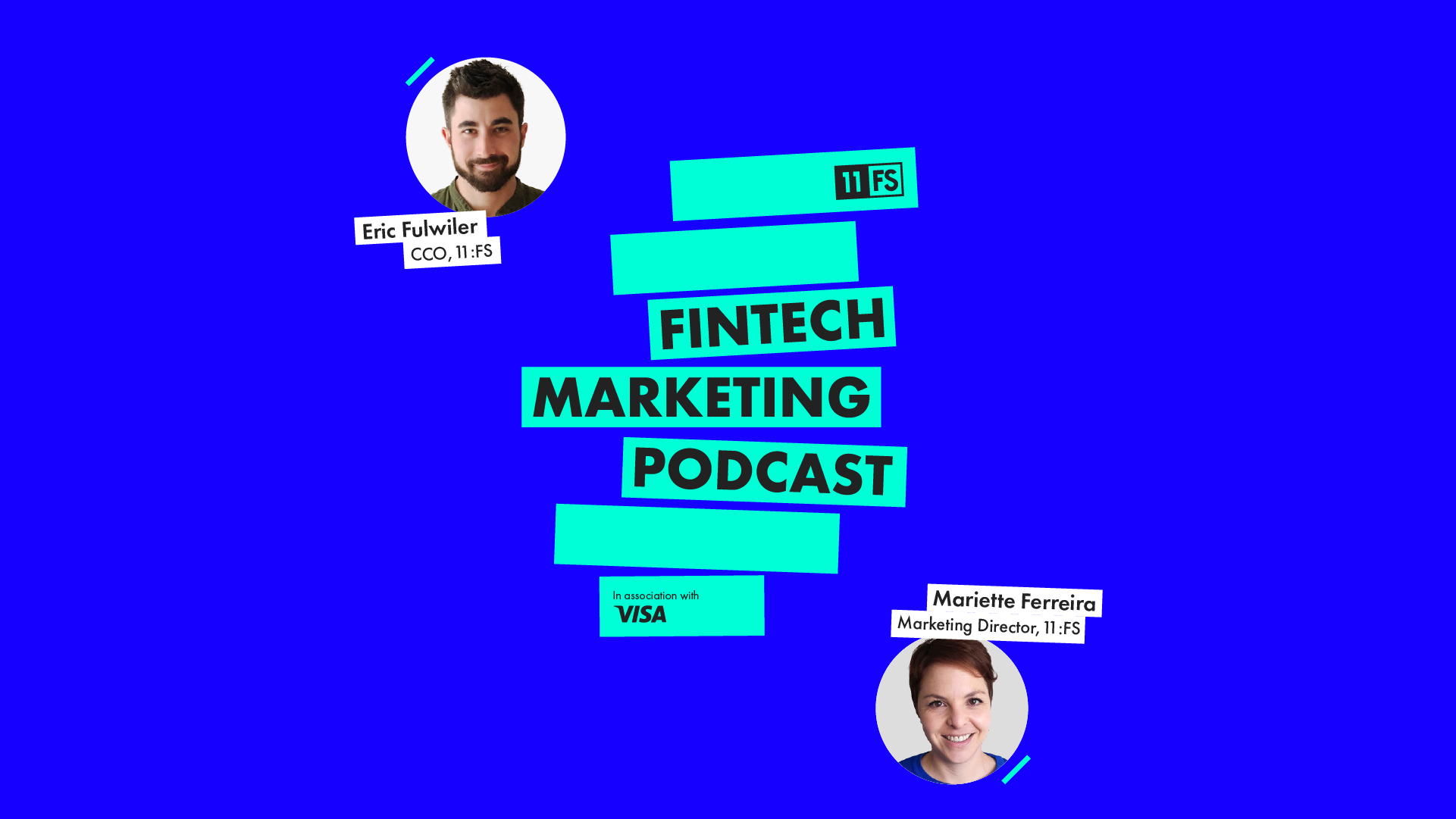
Fintech Marketing Podcast Season 2 Preview
Fintech Marketing Podcast Season 2: Coming soon
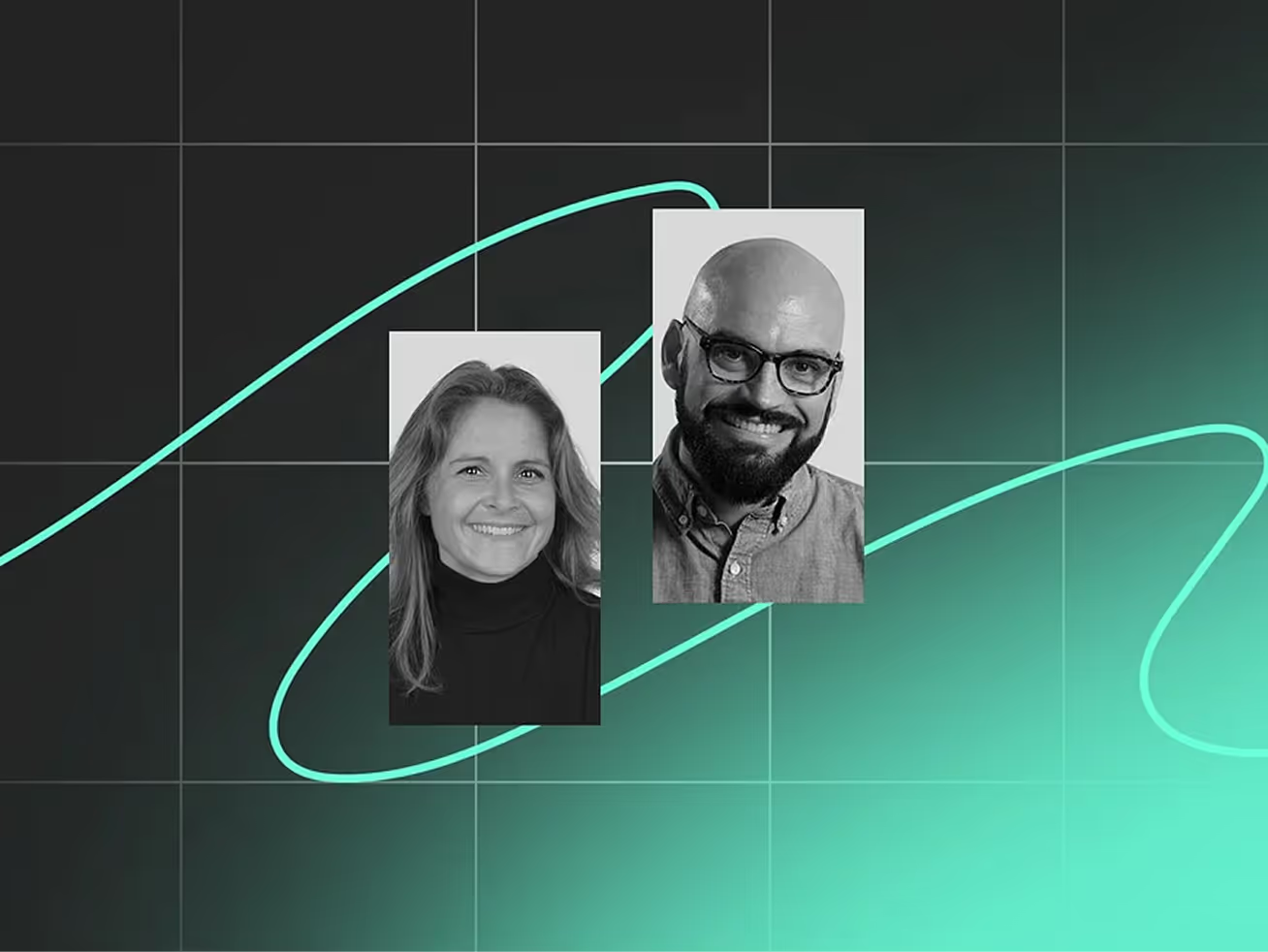
960
Insights: The future of Revolut with UKCEO Francesca Carlesi
The UK banking battlefield has never been more competitive. Customers expectfinancial apps that are personalised, seamless, and that genuinely make a differenc...

960
Insights: The future of Revolut with UKCEO Francesca Carlesi

960
Insights: The future of Revolut with UKCEO Francesca Carlesi
The UK banking battlefield has never been more competitive. Customers expectfinancial apps that are personalised, seamless, and that genuinely make a differenc...

960
Insights: The future of Revolut with UKCEO Francesca Carlesi

960

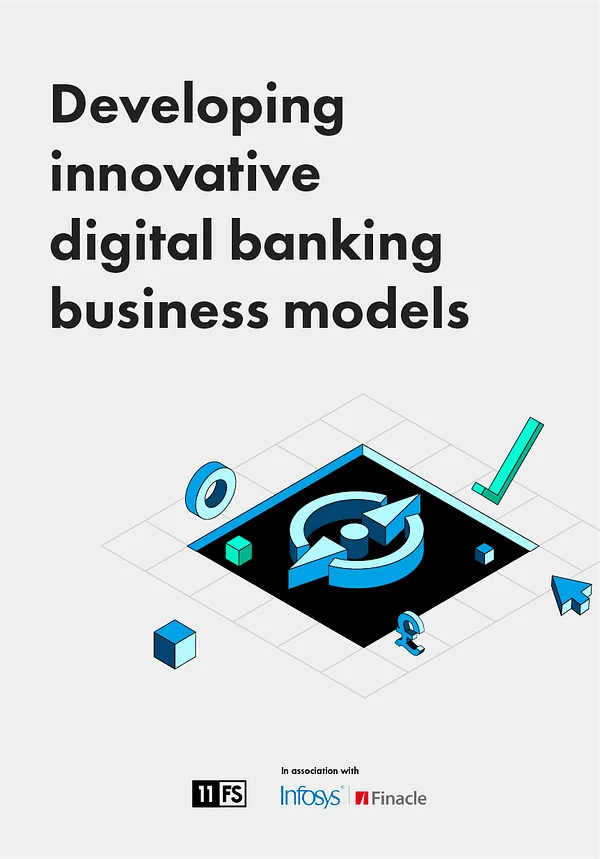


.svg)
.svg)

